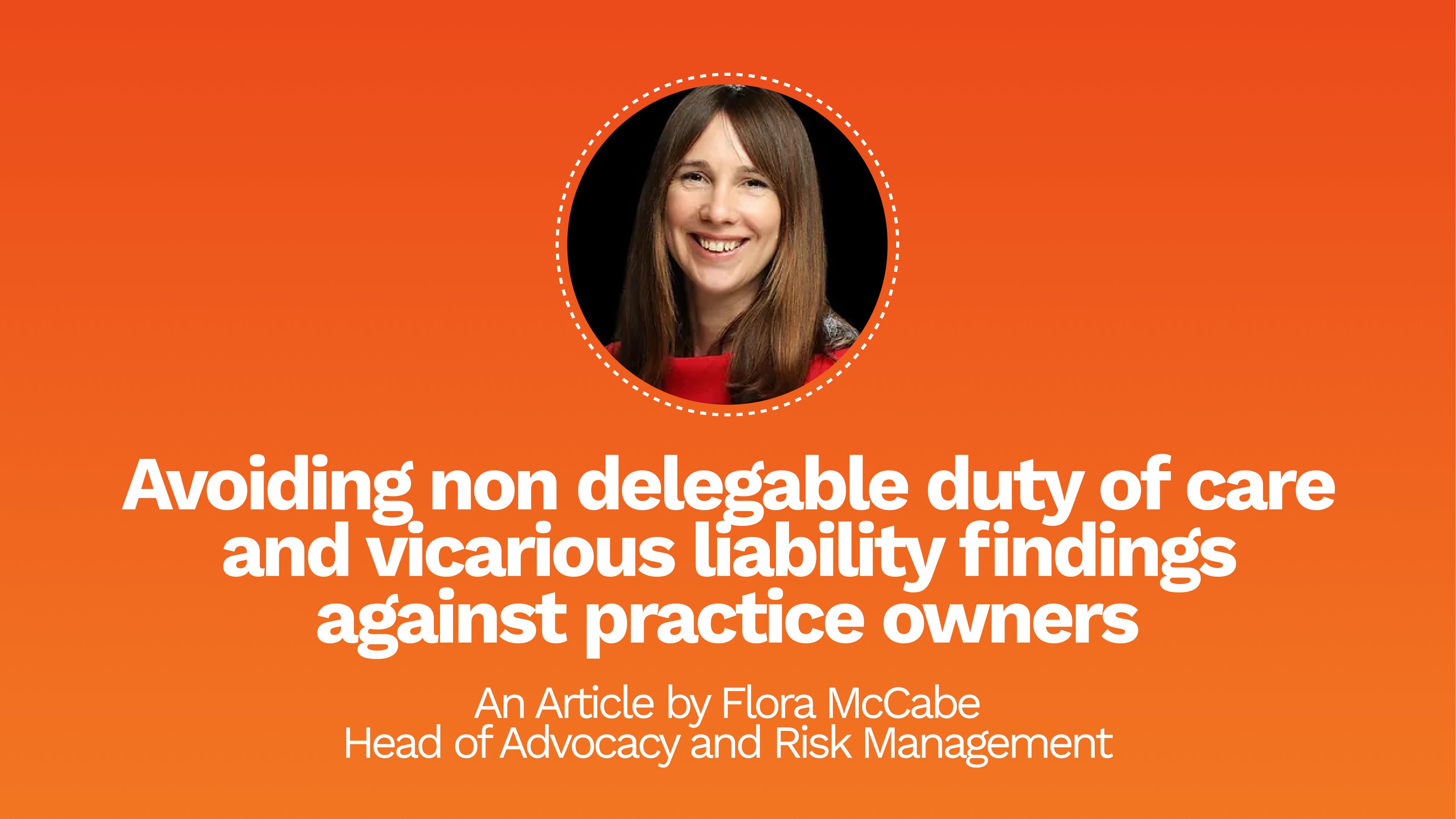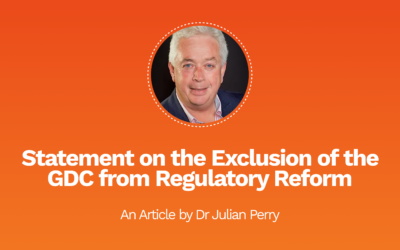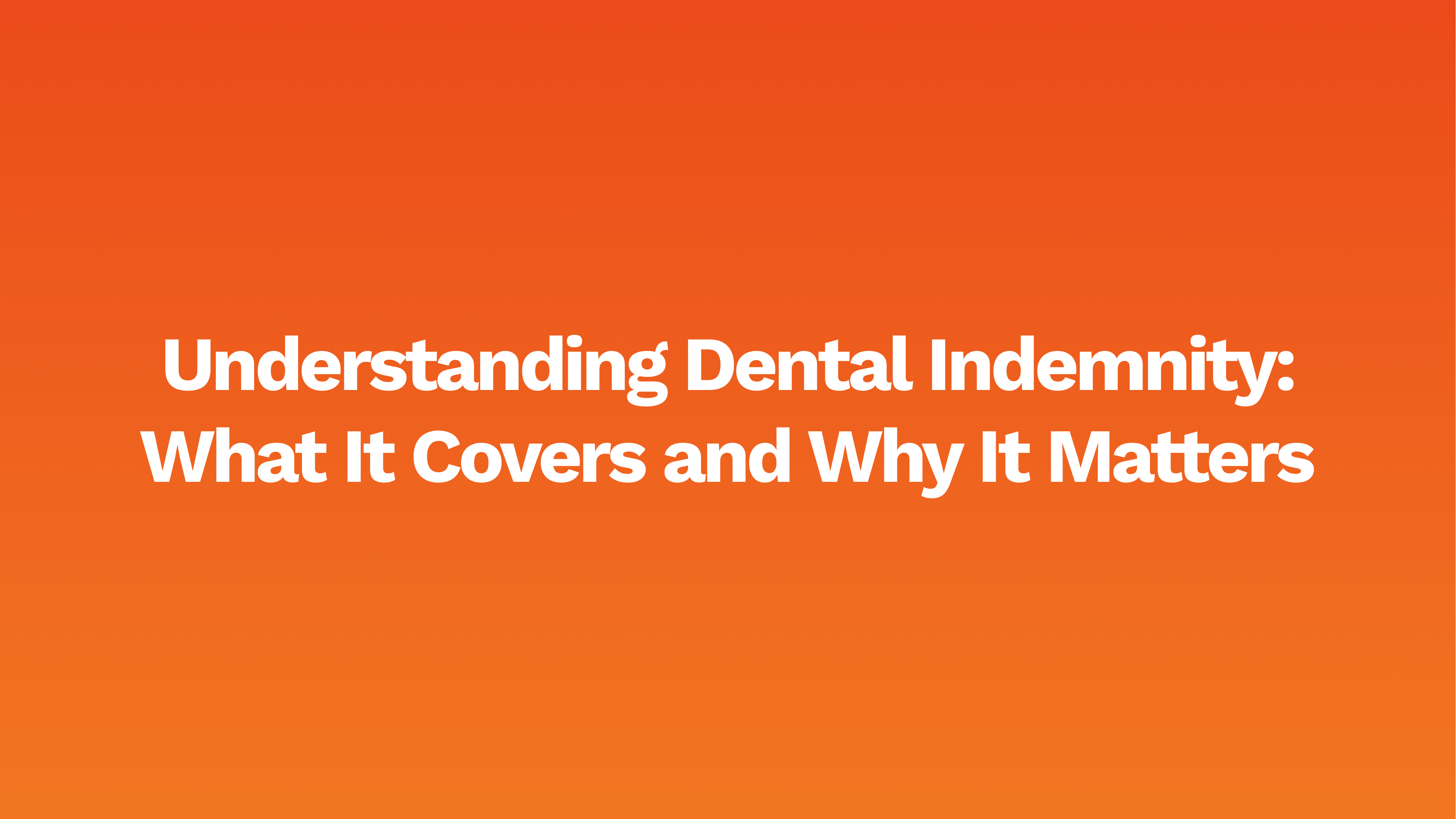In recent years there has been a significant rise in the number of clinical negligence cases involving issues of both vicarious liability and non-delegable duty of care. These allegations often arise in situations where private companies contract with the NHS to provide NHS services, or where private companies sub contract with medical, dental or nursing professionals to provide services.
Vicarious liability is the concept – in this context – that an employer is liable for the negligent errors or omissions of individuals working within their organisation. Historically, those working as self –employed associates have been held to be separately liable for their actions. As time has gone by, there is a growing trend to deem self-employed healthcare workers as being in a position ‘akin to employment.’ The question of a worker’s status comes into play in particular where the individual treating clinicians are uninsured, uncooperative or simply uncontactable.
Non delegable duty of care meanwhile can exist in statute or in common law. It is a duty owed towards a particular group of people, such as patients, which cannot be assigned elsewhere. The classic example of the non-delegable duty of care is again the special relationship between employer and employee.
So, how can practice owners minimise the likelihood of a finding against them in these realms?
Tips to avoid falling foul of vicarious liability and non – delegable duty of care decisions
Practice owners must remember that there is no property in a patient – as practices you should not assert ownership over patients. Specifically to avoid non delegable duty of care claims, we would recommend:
- Patient Information resources – ensure information provided to patients explains that associate dentists are personally responsible for the treatment they provide, and self – employed independent contractors.
- Patient communication – ensure all correspondence with the patient – right from when the first appointment is booked – makes clear who is the treating dentist, and that the patient will be a patient of that dentist for the duration of their treatment. For example, text confirmation of appointments should state the dentist’s name rather than the practice’s name, and appointment cards should make clear who the relevant dentist is. Referral letters or summaries of appointments should also be in the individual practitioner’s name.
- FP17DC – Practice owners should ensure the name of the treating dentist is added to the form either handwritten alongside the performer number or added into the Oral Health Assessment box which sets out the care and treatment required.
In terms of vicarious liability, there are also a number of actions that can be taken to minimise the likelihood of a successful claim against the practice.
The judge in the case of Croad did not seem to consider that a fee splitting arrangement reflected any sharing of risk and reward nor that, although the practice benefitted from the fees from his or her work to the extent of 50%, the rest was for the benefit of the Associate. It would therefore be wise for practice owners to shy away from setting targets. Further:
- Urgently review your contractual arrangements with Associates. Densura and Lockton together with our trusted providers offer this service.
- Ensure appropriate indemnity and insurance cover is in place for every Associate you engage with. Store this safely.
- Buy vicarious liability cover if you do not have it in place already.
- Do not use template associate agreements; seek legal advice on securing bespoke contracts.
- Think about avoiding catch all statements which promise that the services offered are safe and meet the expected standard of the local health board.
- Ensure consistency when patients see a dentist; where possible they should see their assigned practitioner.
- Incorporate a clause allowing practice owners to reclaim the costs incurred when dealing with a complaint made due to an associate’s negligence or recklessness.
- Ascertain the whereabouts of former associates in anticipation of claims arising and keep all their indemnity arrangements on record so that contact can be made with the relevant indemnity provider.
- Practice Owners build in a clause to their contract to allow them to notify an Associate’s indemnifier if reasonable steps to trace an Associate have failed and a claim is made against either the Practice or the Associate in their absence.
- Ensure the facilities, equipment, health and safety protocols, and the training and selection of your employed staff are all up to the highest standards, thus lessening the likelihood of claims.
- Oblige associates to be responsible for keeping their training up to date – but never forget to document that you check their training is up to date as otherwise you could fall foul of allegations of failure to provide adequate service.
- Notify your indemnity provider immediately a vicarious liability / non delegable duty of care allegation comes in so that it can be promptly addressed and an entire defence strategy – including making contact with the individual practitioners – can be coordinated. Sitting on the allegations assuming they will be met by the individuals in question only leads to trouble.
At Densura, we believe in empowering both clinicians and patients through education and support. If you have encountered a complaint, claim, or need guidance on any patient-related issue, our team is here to assist you. Contact us at 0207 933 0349, email us at notifications@densura.com or click here. We are committed to providing prompt and professional support to ensure your concerns are addressed effectively.



